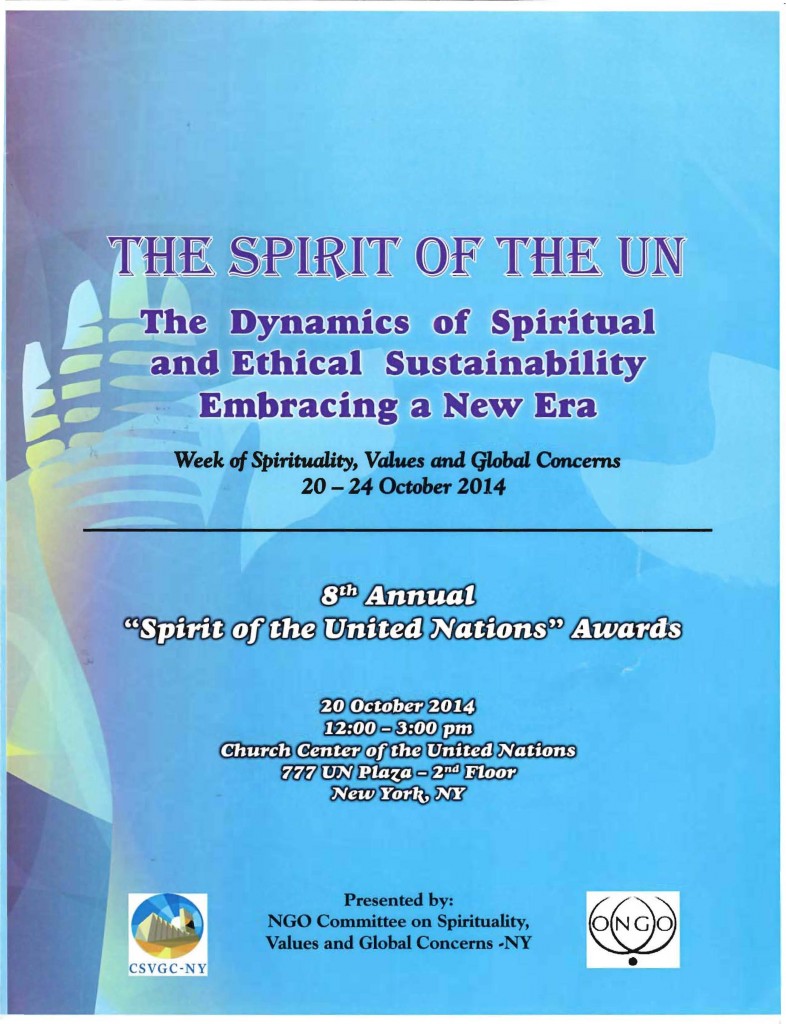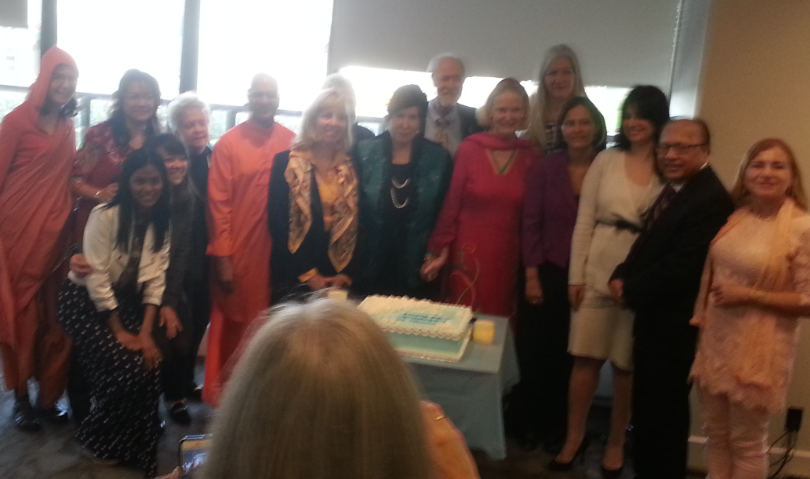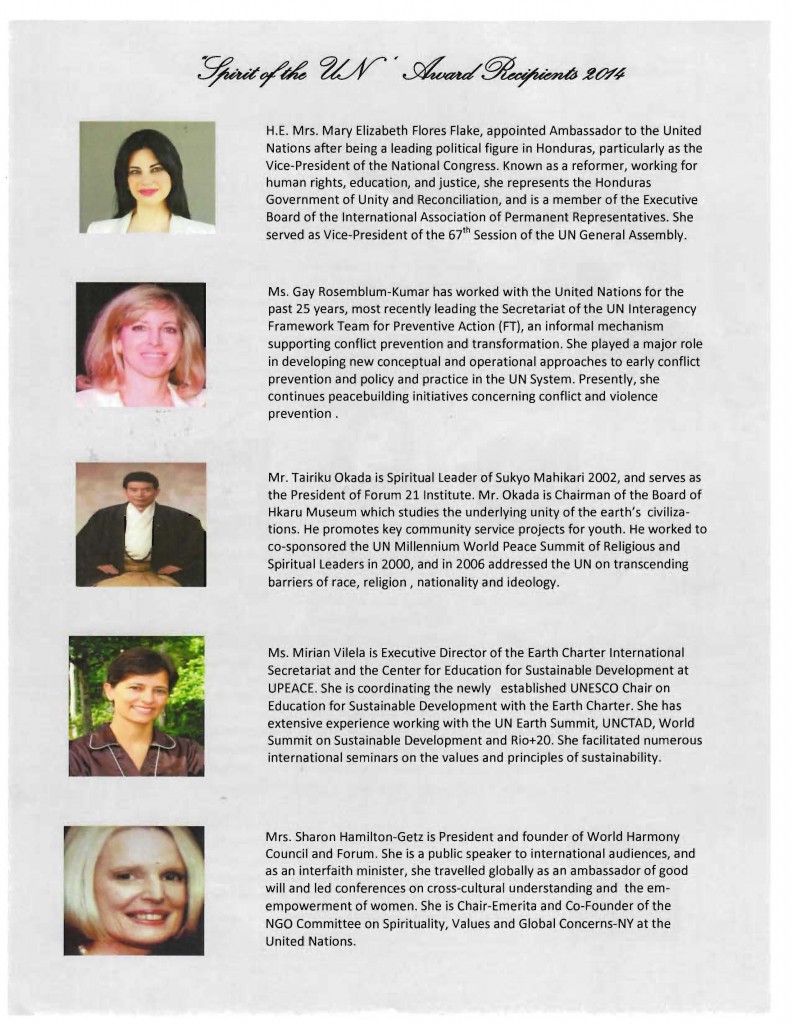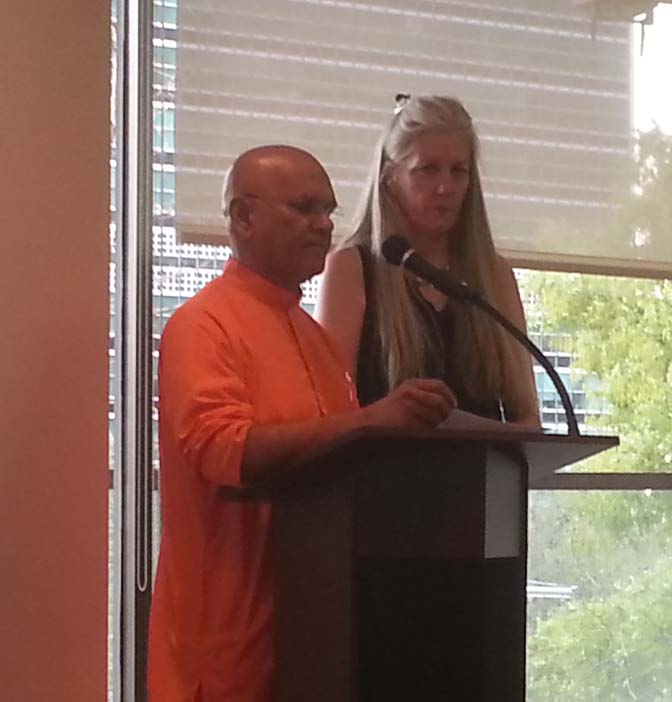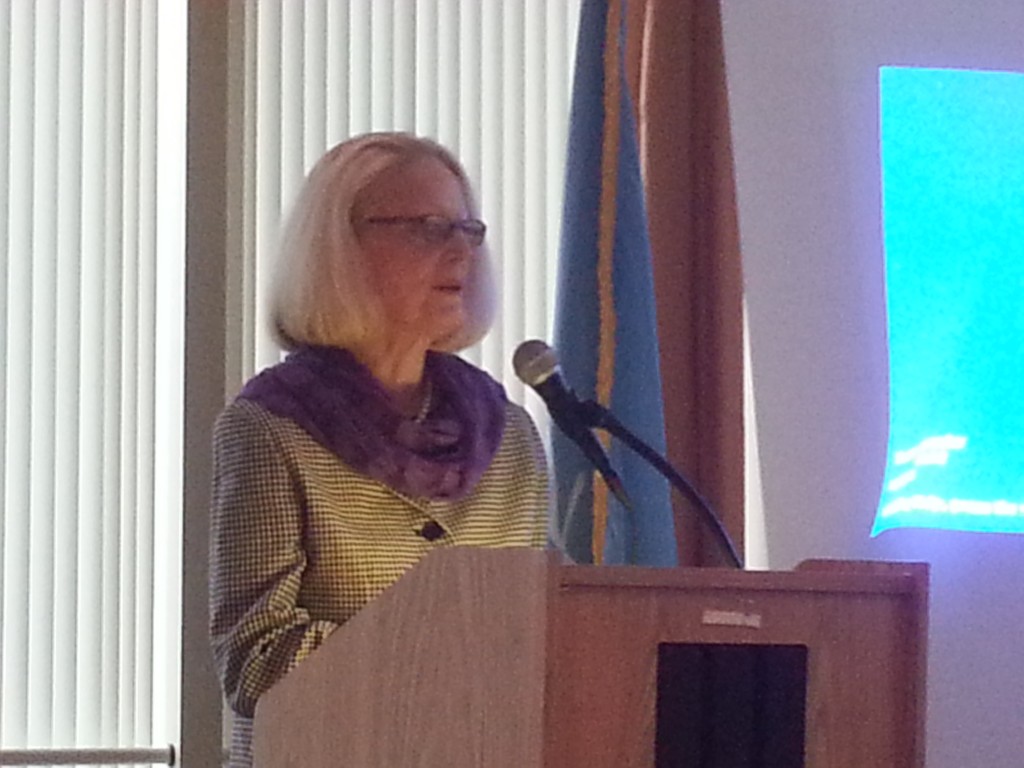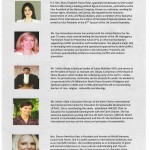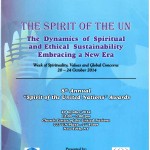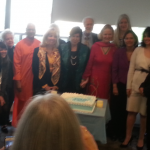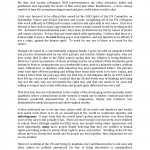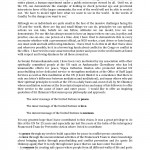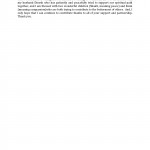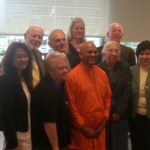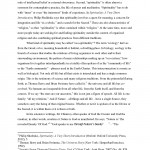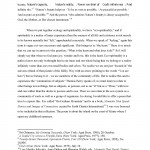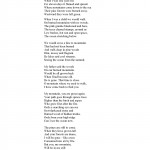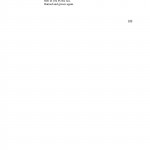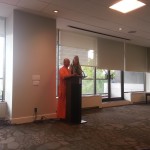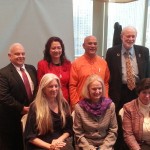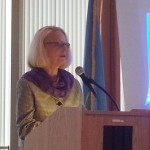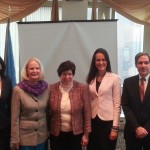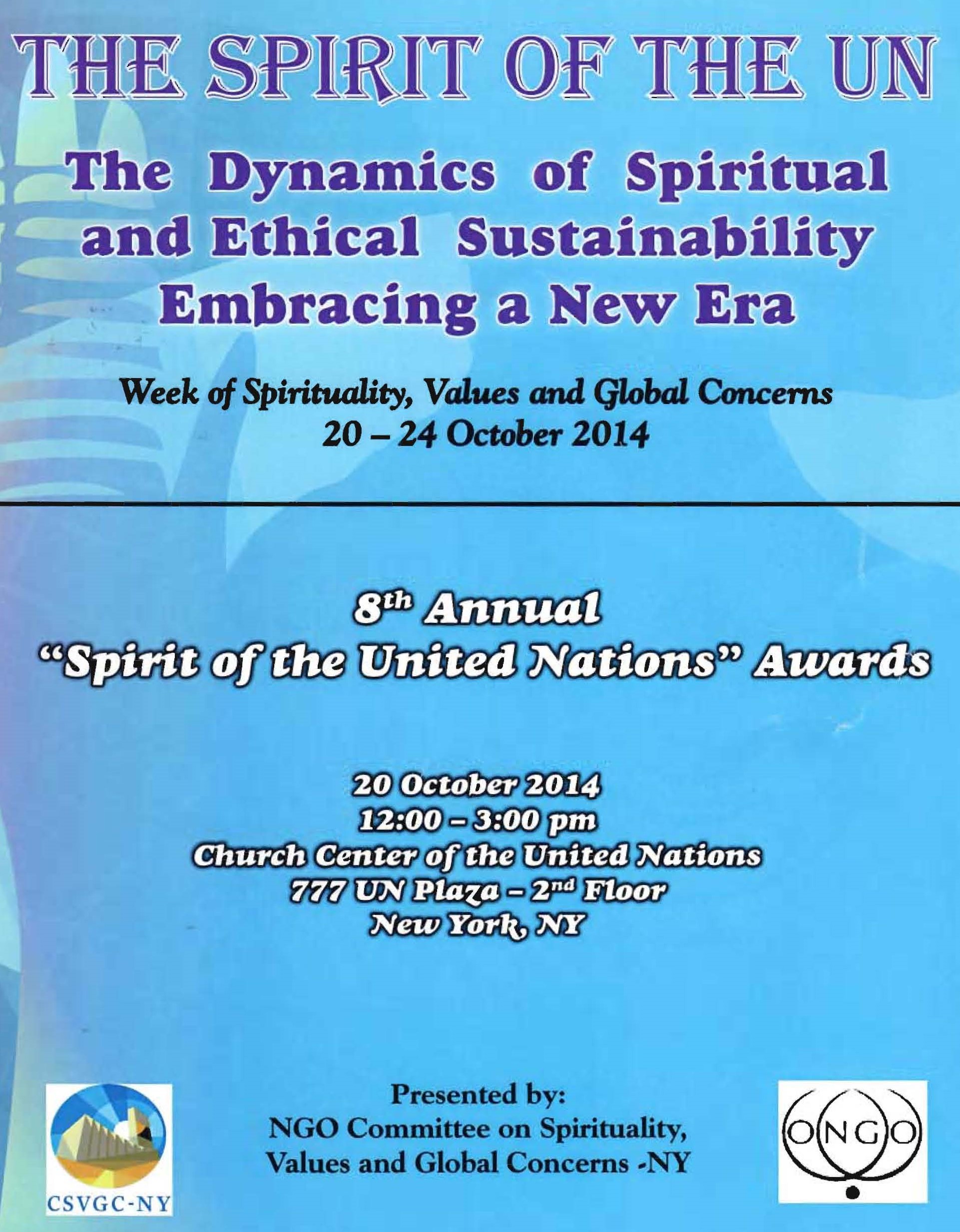“Spirit of the UN” Award Ceremony, 2014 : Dynamics of Ethical and Spiritual Sustainability 20-24 Oct
Filed under 2 or more | Interfaith meeting - conference | Other Awards, Citations, Presentations | With video | z- no categoryMembers of the Peace Meditation at the UN participated in Week of Spirituality, Values and Global Concerns Oct 20-24 2014. This included the & 8th Annual “Spirit of the UN” Award Ceremony ’14 : Dynamics of Ethical and Spiritual Sustainability – Embracing the New Era.
a report of some activities and links to cell phone videos is at:
http://www.xunicef.org/2014/10/week-of-spirituality-values-and-global-concerns-ny-oct-20-24-2014/
October 20, 21, 24
Monday Oct 20th
-
Meditation
10:30 – 11:30 a.m., The Church Center Chapel, New York, N.Y. 10017
-
“Spirit of the UN” Awarding Ceremony
Congratulatory remarks were given by H.E. Mr. Anwarul K. Chowdhury, Former High Representative and Under-Secretary-General of the UN.
(Note: Ambassador Chowdhury is also long time supporter of the Peace Meditation at he UN and the Founder Sri Chinmoy. A previous year’s recipient of the “Spirit of the UN Award”, he is 2nd from the right in photo below.)
2014 “Spirit of the United Nations” Awardees
- H.E. Mrs. Elizabeth Marie Flores Flake, Ambassador and Permanent RepresentativePermanent Mission of Honduras to the United Nations
- Mrs. Gay Rosenblum-Kumar; UN Staff member – UNDP, Executive Secretary, UN Interagency Framework Team on Preventative Action . Ms. Rosenblum-Kumar has also been attending the Peace meditations for many years which she mentions in her acceptance speech . (Download pdf 2014-10-oct-20-Spirit-UN-Talk-Points-gay-rosenblum-kumar)
- Mr. Tairiku Okada ,Spiritual Leader, Sukyo Mahikari: Centers for Spiritual Development
- Ms. Mirian Vilela,Executive Director, Earth Charter International Secretariat
- Mrs. Sharon Hamilton-Getz, Chair Emeritus, Committee on Spirituality, Values and Global Concerns
Sustainable Development: Creating Common Goals
TUESDAY, OCT 21, 2014 10:30 AM – 12:00 PM UN Church Center, 2nd Floor 777 1st Avenue at 44th Street, New York, NY
Panel Discussion Moderators:
- Swami Parameshananda, UN and International Representative, Bharat SevashramSangha
- Cathy Towle, UN Representative, International Association for the Advancement of Innovative Approaches to Global Challenges (IAAI)
-
Speakers:
Kusumita Pedersen, Ph.D. Co-chair, Interfaith Center of NY; Ms. Pedersan is also a longtime supporter of the Peace meditations a the UN which is mentioned in her talk. Raw cell phone video at: http://youtu.be/nlUgZoVa3-I. Download a PDF of full text : Remarks by Kusumita Pedersen-21 Oct 2014
Dan Kittredge, Director, Bionutrient Association; Raw cell phone video at: http://youtu.be/40vaaCVkOk0
Rick Clugston, Ph.D. Director, Sustainable Development Programs, Forum 21. Raw cell phone video at: http://youtu.be/0yOUHSsOs0
- Mr. James Sniffen, Chief International Coordinator, UN Environmental Program. Raw cell phone video at: http://youtu.be/uND-cjvZ4ZY
Friday 24 October 2014- 11 am – 12:30 pm
Nigerian Mission to the United Nations
828 2nd Ave (44th street) Floor 21 NY, New York 10017
The Health, Transformation and Spirituality (HTS) Working Group presents
Sustainable Health and Peace:
Integrative Approaches for a Healthy Planet
Invocation: Jane Kearns, Opening remarks and a moment of silence
Chair: Dr. Ani Kalayjian, Association for Trauma Outreach & Prevention, Meaningfulworld, ACRPC, VP of CSVGC-NY, & Chair of Health Transformation and Spirituality
Panel:
-
- Dr. Ani Kalayjian, “Forgiveness Post Human-Made & Natural Disasters”
- Dr. Joel Charles, President of INCA, “Ethics Post Disasters: Perspectives from Haiti”
- Beth Shaw, President & Founder, YogaFit, “Sustainable Global Health and Peace through YogaFit”
Music: Handan Hizmetli, Songs from the Past
Closing Circle: Heart-to-heart circle of gratitude
Closure: A moment of silence for unity and closure
“History, despite its wrenching pain cannot be unlived,
but if faced with courage, need not be lived again” Maya Angelou
or call Dr. Ani at 201 941-2266
Spiritual Council for Global Challenges Working Group of CSVGC-NY presents
Nurturing and Its Role in Peace and Sustainable Development
Venue : Nigeria House, 828 2nd Avenue,
44th and 2nd Avenue, 21st Floor
Panel Discussion
Nurturing Through Government: H.E. Mrs. Mary Elizabeth Flores Flake; Raw cell phone video at: http://youtu.be/cR8Mqq_sOPI
Nurturing Through Law: Ms. Devika Kewalramani, Partner Moses and Singer LLP; Co-Chair, Legal Ethics and Law Firm Practice; Raw cell phone video at: http://youtu.be/sM82472G7Xs
Nurturing through Women: Ms. Inna Revina, Holistic Health Coach & Chef Founder, Innaturaliscious and Be Vital You – Yoga Teacher; Raw cell phone video Part 1 at: http://youtu.be/EfSVcH7Hs30; Raw cell phone video Part 2 at: http://youtu.be/Fr7J8mjTkug
Nurturing through Community: Virja Puri, CEO Gotham Greens (Invited) see video at http://player.vimeo.com/video/62903716?autoplay=1; Mr. Charles Nunag, Global and Local Sustainable Farming
Nurturing through Science and Technology: Mr. Richard J. Sobelsohn, Esq. Raw cell phone video at: http://youtu.be/43iEUEGw5p0
Part of Introduction to above panel; Raw cell phone video at: http://youtu.be/P5P2xf9x7Ck
Download pdf of Brochure: 2014-10-20-24-Spirit_of_UN-ethical-sustainability-awards-opt
Click on image below for larger or different resolution Photo-Image:
Alternative Presentation:
“Spirit of the UN” Award Ceremony, 2014 : Dynamics of Ethical and Spiritual Sustainability 20-24 Oct
2014 “Spirit of the United Nations” Awardees
| H.E. Mrs. Elizabeth Marie Flores Flake, Ambassador and Permanent Representative Permanent Mission of Honduras to the United Nations
Mrs. Gay Rosenblum-Kumar; UN Staff member – UNDP, Executive Secretary, UN Interagency Framework Team on Preventative Action . (Ms. Rosenblum-Kumar has also been attending the Peace meditations for many years which she mentions in her acceptance speech . (Download pdf 2014-10-oct-20-Spirit-UN-Talk-Points-gay-rosenblum-kumar) Mr. Tairiku Okada ,Spiritual Leader, Sukyo Mahikari: Centers for Spiritual Development Ms. Mirian Vilela, Executive Director, Earth Charter International Secretariat Mrs. Sharon Hamilton-Getz, Chair Emeritus, Committee on Spirituality, Values and Global Concerns |
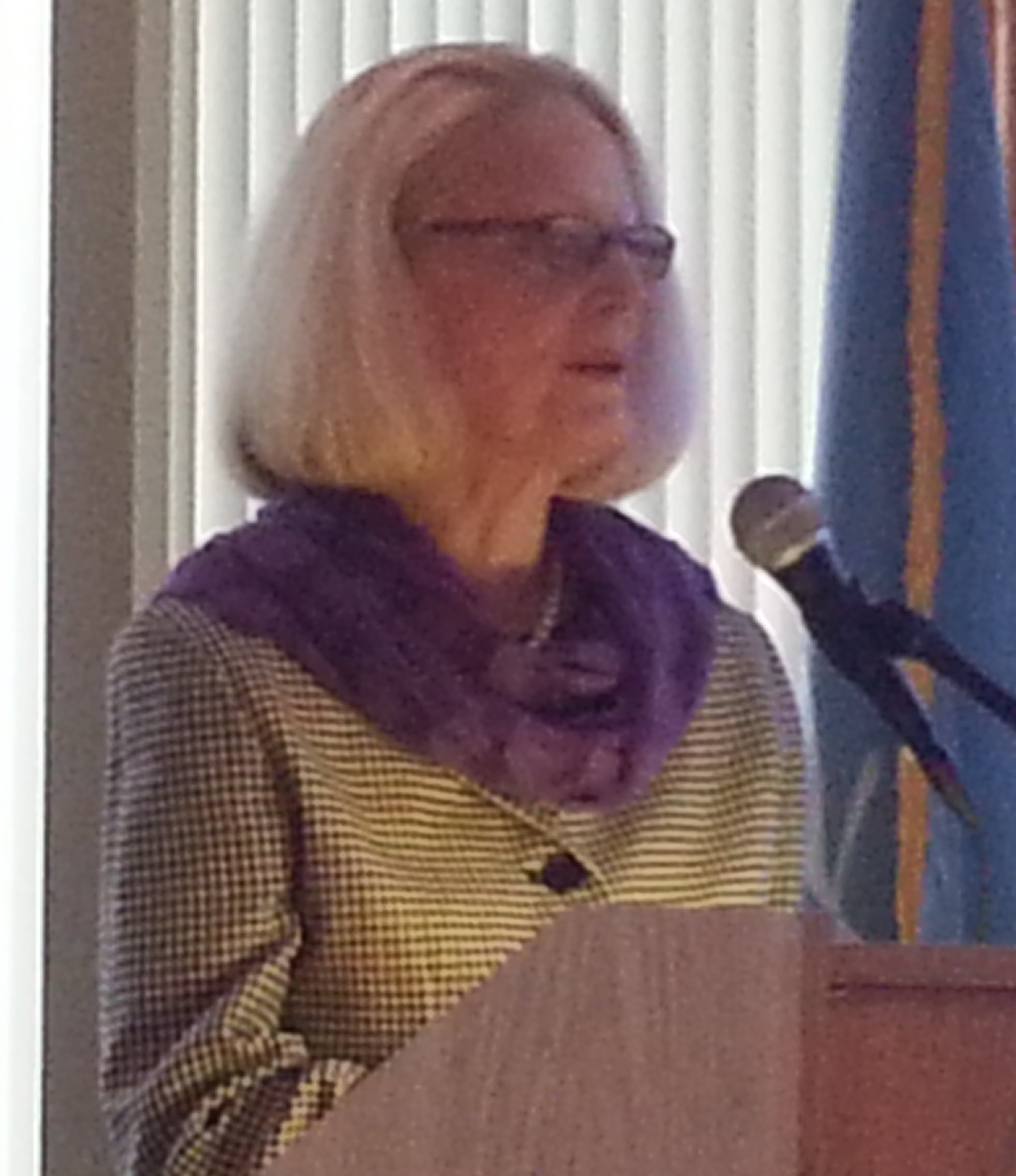
Mrs. Sharon Hamilton-Getz, |
Speakers:
Kusumita Pedersen, Ph.D. Co-chair, Interfaith Center of NY; (Ms. Pedersan is also a longtime supporter of the Peace meditations a the UN which is mentioned in her talk. Raw cell phone video at: http://youtu.be/nlUgZoVa3-I. Download a PDF of full text : Remarks by Kusumita Pedersen-21 Oct 2014) (See below)
Dan Kittredge, Director, Bionutrient Association; Raw cell phone video at: http://youtu.be/40vaaCVkOk0
Rick Clugston, Ph.D. Director, Sustainable Development Programs, Forum 21. Raw cell phone video at: http://youtu.be/0yOUHSsOs0
Mr. James Sniffen, Chief International Coordinator, UN Environmental Program.
| Ecospirituality: A Personal Reflection – Kusumita P. Pedersen, Panel on “Spiritual Values and Their Role in Ecological Sustainable Development: Creating Common Goals” 21 October 2014NGO Committee on Spirituality, Values and Global Concerns Eco-Spirituality Working Group
First and foremost let me offer my gratitude for this invitation. It is a joy to be here and to be asked to speak on ecospirituality, a subject very close to my heart. As Swami Parameshananda mentioned, I am a student of an Indian teacher of spirituality, Sri Chinmoy, who left his physical body in 2007. During his lifetime he held meditations for peace twice weekly here at the United Nations, beginning in 1970 at the invitation of U Thant. These meditations still continue today. When they began they continued an already existing tradition of giving value to spirituality, a tradition established by U Thant, Dag Hammarskjold and those who at the time of the UN’s founding called for the opening of the General Assembly to include a moment of silence. Looking back to the 1970s it is possible to appreciate how much more open acceptance of spirituality there is today in the United Nations context. This is due to the sustained efforts of many people and groups over the years, including many of you here in this room as well as the Peace Meditation led by Sri Chinmoy. The NGO Committee on Spirituality, Values and Global Concerns is a milestone achievement in this movement.(1) It has been a deeply fulfilling experience to be on this journey and I look forward to continuing on the way with all of you – the need for our service has never been greater. All of this being said, what is “spirituality”? The term “spirituality” has no precise or technical definition and yet is becoming more and more common. I believe that the great increase in the use of the word “spirituality” is a very important development. It seems that it has two main senses, which overlap. First, “spirituality” is a matter of experience and feeling, not only of intellectual belief or external observance. Second, “spirituality” is often almost a synonym for contemplative practice, the life of prayer and meditation. “Spirituality” has to do with “inner” or even “the innermost” kinds of experience. In Spirituality: A Very Short Introduction, Philip Sheldrake says that spirituality involves a quest for meaning, a concern for integration and life “as a whole,” and a search for the Sacred.(2) What kind of spirituality may be called “eco-spirituality”? The term “ecology” derives from the Greek oikos, meaning household or habitat, a dwelling-place. In biology, ecology is the branch of science that studies the relations of living organisms to each other and to their surrounding environment, the pattern of many relationships making up an “eco-system,” how organisms live together interdependently in a totality often spoken of as the “community of life” or the “Earth community” – phrases used in the Earth Charter. This interconnection is cosmic as well as biological. Not only all life but all that exists is interrelated and has a single common origin. This is the testimony of science and many religious traditions. From the primordial flaring forth, as Thomas Berry and Brian Swimme have called it, These are also characteristics of “religion,” so that “spirituality” is often contained within “religion.” At the same time, more and more people today are seeking for and finding spirituality outside the context of organized religion and also combining spiritual practices from different traditions.(3) In his extensive writings, Sri Chinmoy often speaks of God the Creator and God the creation; in other words, creation or Nature is God as manifested. He says, “Nature is/ The revealed Beauty/ Of God.” the universe and all life has co-evolved. We humans are inseparable from all other life, from the Earth itself, and from the cosmos. If we say “the stars are our ancestors,” this is not just a figure of speech. All life is one family: “all my relations.” And if Nature – all things and all life – have a single Source, they somehow carry the being of that original Source. Whether or not it is spoken of as the Divine or the Sacred, it is within them or it is them or both. (4) “ God speaks to me through Nature’ s beauty”(5) “The inexhaustible beauty/ Of Nature’s self-giving life.” (6) “Nature is never spent. / Nature’s beauty, Nature’s capacity, Nature’s reality, / Never run short of God’s infinite sea / And infinite sky.”(7) “Nature’s beauty helps us / To be as vast as possible, / As peaceful as possible / And as pure as possible.”(8) And the person “who admires Nature’s beauty is already accepted by God, the Mother, as Her chosen instrument.”(9) When we put together ecology and spirituality, we have “eco-spirituality,” and if spirituality is a matter of inner experience then the oneness of all life and existence is not merely to be known mentally but “felt,” apprehended concretely. When we speak of “feeling,” again this term is vague yet very necessary and significant. This brings us to “the heart.” There is so much that we can say in answer to the question, “What is the heart and what does it do?” So I will simply say that when we feel pure joy, wonder and love, this is the heart. Eco-spirituality is a path to know not only in thought but in our inner and our whole being that we belong to a reality infinitely vaster than our own small bodies and selves. We realise we are not just “located in” the universe (think of that picture of the Milky Way with an arrow pointing to the words “You are here”) but we belong to it – we are members of the community of life. But to realise this and to experience the “communion of subjects” Thomas Berry speaks of, we must learn to relate to other beings not as things, but as subjects, as persons, not as an “it” but as a “Thou,” with love and care rather than the desire to possess and to use. Then we can relate to the eco-system as a community of souls as well as a group of organisms. In closing I would like to offer a poem that tries to express this. It is called “On Gorham Mountain” and is in a book, Moments That Speak: Stories and Images of Connection, created by Earth Charter International.(10) I was very honored to be included in that collection. The poem is about the island on the coast of Maine where I spent my childhood summers There was a fire on Mount Desert Island When I was one year old. For eleven days it flamed and spread. Where mountains come down to the sea Their pine forests were burned away. Westward they were left green. When I was a child we would walk On burned mountains with no woods, The pink granite blackened and bare, The trees charred stumps, around us Low bushes, hot sun and open space, The ocean stretching below. We would cross a line to mountains That had not been burned And walk deep in pine woods Dim, mossy and fragrant By lakes and cool streams, Seeing the ocean from the summit. My father said the woods On our burned mountains Would be all grown back When I had become old. He is gone. That time is close. O mountain where we used to walk, I have come back to find you. My mountain, you are green again. Your path goes through spruce trees Higher than the birch and aspen Who grew first after the fire. Only a searching eye can see Soot-darkened stone and Burned wood of hidden trunks. Only from your high ridge Can I see the ocean now. The pines are still to come. When they have grown tall And your forests are dense, I will be gone – like a tree Consumed into air by fire. But you, my mountain, Will be in me still Wherever I will live And I will be here ever, Still in you by the sea, Burned and grown again. Notes 1. See Kusumita P. Pedersen, “Sri Chinmoy’s Work at the United Nations: Spirituality and the Power of Silence,” special issue on “Religion and the United Nations.” Azza Karam and Matt Weiner, eds. CrossCurrents 60/3 (September 2010): 339-351. Page 2 ) 2. Philip Shedrake, Spirituality: A Very Short Introduction (Oxford: Oxford University Press, 2012), 5. 3. Thomas Berry and Brian Swimme, The Universe Story (New York: HarperSanFrancisco, 1992). 4. Seventy-Seven Thousand Service-Trees, Part 47 (New York: Agni Press, 2007),No. 46, 874 – “The 5. My God-Hunger-Cry Part 1 (New York: Agni Press, 2009), March 1, 2006. 6 . Sri Chinmoy, My Evening Descends, (New York: Agni Press, 1996), 20 October. 7. A Souful Cry versus a Fruitful Smile (New York: Agni Press, 1977), 158. 8. Twenty-Seven Thousand Aspiration-Plants, Part 169 (New York: Agni Press, 1992), No. 16,806. 9. God’s Hour (New York: Agni Press,1973), July 12. 10. Lisa Marika Jokivirta, Anna Duhon and Shannon Walsh, eds., Moments That Speak: Stories and Images of Connection (Amsterdam, KIT Publishers, 2012), 72-73. |
Remarks by Gay Rosenblum-Kumar at the “Spirit of the United Nations Awards” 20 Oct 2014. Spirit of the UN – Talking Points
My dear civil society colleagues, NGO representatives, my other awardees, ladies and gentleman and especially the hosts of this event and other Excellencies…..I have always wanted to turn the normal greeting around and give credit where credit is due! I feel very honored to be offered this award by the NGO Spirit of the UN Committee on Spirituality, Values and Global Concerns and accept, recognizing all of my UN colleagues who work selflessly at UNHQ and in many countries and especially in war zones. I feel very blessed to have had so many opportunities to serve people around world by working at the UN. As Swami Parameshananda said, I have been motivated in my life by causes of justice and causes of peace. For me they are interrelated with spirituality. I believe that there is a human right to peace; that not having peace is an injustice, and any injustice is an affront, if not a crime, against the human spirit. To work for any one of these is to work for the others. Though not raised in a conventionally religious family, I grew up with an unspoken belief and practice demonstrated by my wise parents and mentor, Dimitri Argyriades, who are here today that is akin to the Dalai Lama’s saying that ‘my religion is loving-kindness.’ However, I grew up unaware of all my privilege and by an accident of fate having the good fortune to born to caring parents, in a comfortable home, part of a majority culture, without want, without fear or injustice, with education free and a guaranteed future. My parents, (who took time off from packing and selling their home next week to be here today), just found a letter from 34 years ago after my first trip to sub-Saharan Africa in 1979, when I first left my cocoon and where I realized that my Global North way of thinking and being was not the only way nor necessarily the right way, and that one needs to be open and willing to respect and coexist with ideas and people quite different from one’s self. That first trip was my introduction to the reality of the developing world especially under apartheid, where contradictions in life seemed to stand out in starker contrast and where humans’ wonderful demonstration of love, compassion, charity and resilience was diminished by unchecked greed and short-sighted cruelty. It then motivated me to see my own culture with all its warts and injustices and realize how much work there is to do on oneself and in the world to counteract injustice and unloving-ness. It may seem that the world hasn’t gotten much better over these thirty years of my career, but actually it has. There are more people out of poverty, more children in school, fewer (though equally horrific) wars, less people living under oppression, and most importantly, many more people finally believing that they are entitled to human rights and taking action to pursue their right to peace and justice. Working at the UN has shown me how closely this world and its people are tied together. How dependent we are on one another. However, working at the UN and trying to maintain one’s spiritual practice is not easy and often cannot be publicly announced for fear of being discounted or marginalized. Spirituality is trumped by the premium placed on politics and power over what is ‘right’ and ‘just’. Without a spiritual base, one does not have the freedom from fear to speak truth to power with as much loving-kindness as possible. I believe doing so has impact. I have always seen the UN’s work, its staff, diplomats, and NGO colleagues as a microcosm of the entire planet, a human experiment under a public microscope viewed by all. Until we, at the UN, can demonstrate the example of holding in check personal ego and provincial interests in favor of the larger community, the rest of the world will not be able to work it out. We have to model right here what we want to see in the world. In the words of Gandhi, ‘be the change you want to see.’ Although we as individuals are quite small in the face of the massive challenges facing the UN and the world, there are big and small things we can do, principles we can uphold, actions we can take, beliefs we can follow, attitudes we can model, love we can demonstrate. For me this has always meant to have an impact where one can, in policy and practice, one-on-one, one person at a time. And, I have tried to demonstrate this in every encounter whether with a government official, an NGO worker, a taxi driver or hotel maid, one must walk and talk with loving-kindness. I have tried to do this in all that I have done and wherever possible, be it in a brown bag lunch about conflict in the Congo or conflict in the office. I have tried to raise awareness that justice and peace in the world starts at home with respect and loving-kindness for all those around us .As Swami Parameshananda said, I have been very motivated by my association with other spiritually committed people at the UN such as Ambassador Chowdhury who has led innumerable efforts for peace, Vijaya Catherine Claxton who promoted internal UN peacebuilding in her dedicated service to strengthen mediation at the Office of Staff Legal Services as well as thru meditation at the UN (I don’t think it is a coincidence that there is only one letter’s difference between mediation and meditation!), and many others who put their spiritual principles to work at the UN on a daily basis and, most of all, by Sri Chinmoy whose meditation sessions at the Secretariat inspired me and many of his followers to offer their service to the cause of inner and outer peace. I would like to offer an inspiring quotation of Sri Chinmoy’s that sums up my philosophy and approach: The outer message of the United Nations is peace. The inner message of the United Nations is love. The inmost message of the United Nations is oneness. It is my greatest hope that I have contributed to this vision. It was a great privilege to do this at the UN for 25 years and especially my last five years at the helm of the interagency Framework Team for Preventive Action where I tried to contribute: – to peace through my work to build capacities for peace in conflict-prone countries, – to love through the unconventional activities of the Framework Team to share knowledge about bringing justice through peacebuilding and conflict prevention and (to quote Sri Chinmoy again) that ‘it is only through inner peace that we can have outer freedom’ – to oneness by creating safe spaces where people from all different walks of life and parts of the UN and the world could come together to share their views and visions and co-create a more peaceful, just world. I have been blessed with generous and hard-working co-workers, I have been blessed with my husband Dinesh who has patiently and peacefully tried to support our spiritual path together, and I am blessed with two wonderful children (Shanti, meaning peace) and Remi (meaning compassion) who are both trying to contribute to the betterment of others. And, I only hope that I can continue to contribute thanks to all of your support and partnership. Thank you |


